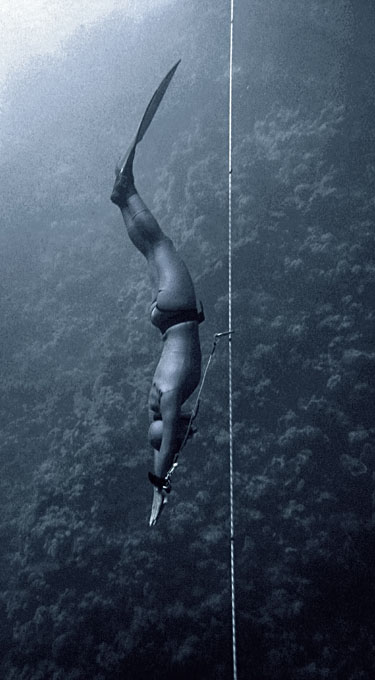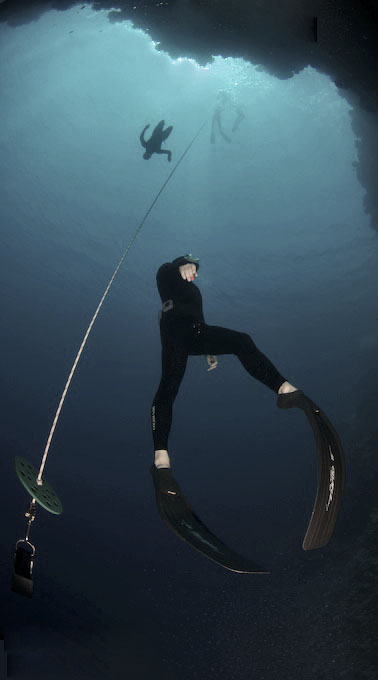Freediving Psychology
The mammalian dive reflex makes freediving possible, and even looks after us during the process. While the reflex is autonomous, i.e. we can’t control it, we can train it, if we are stressed, we will inhibit it. What makes it possible for one person to dive to 90m and for another to black-out at 20m? The main differentiator is stress, or management of stress.
The breath and the mind are interlinked. When we are stressed we are told to stop and take a few deep breaths. This is because when we slow down the breath, we slow down the mind, which hopefully gives us space to see things more clearly and take control.
Our mind is a tool, part of our body just like any other, and just like any other part of our body, it needs exercise and challenge to work properly. Where the mind becomes more important than our body is, that when our mind is not trained and controlled, it begins to control us. This is where all the modern stress-related illnesses are coming from – a lack of control of our mind, letting it take control of us.
Meditation and yoga and an integral part of freediving training, but the importance of meditation cannot be underestimated. If we feel stressed about a dive, attempting a new depth, for example, our breathing becomes rapid and shallow and the whole dive reflex is switched off. Which is why a theoretically ‘easy’ dive of 20m becomes a huge challenge.
Meditation trains the mind to see things as they are, not overly positive and not overly negative. A dive is a dive. And if you’re diving happily to 48m, there is no reason why you shouldn’t dive to 50m. But often we attach so much importance to that big number that it becomes scary, we feel stressed about our dive, and our dive reflex switches off. And the thing we are scared about – blacking-out – is far more likely to happen as our body is not ready to dive. It becomes a vicious circle.
Meditation breaks this circle. Understanding the physiological response to diving gives us a rational base to start from. Then when we just see the dive for what it is – a physical and mental challenge for which we are well-prepared, and of which we are more than capable of achieving, then the dive happens more or less on its own.
Meditation builds trust in ourselves and our bodies, and allows the essential moment of surrender to the process, trusting that the body knows what to do to take perfect care of us.
Contrary to what many people believe, it is not about drifting off and not thinking about anything, it is about supreme focus and attention, thinking only about the stage of the dive you are currently in – not worrying about an imperfect duck-dive, stressing about the free-fall or doubting your ability to make it back from the bottom. Equally not feeling overly euphoric on the ascent because you hit a new target depth. Whatever stage of the dive you are in, you are in 100 percent, not distracted or mislead by thoughts of any other part of the dive. Once this can be achieved, the freedive looks after itself.


